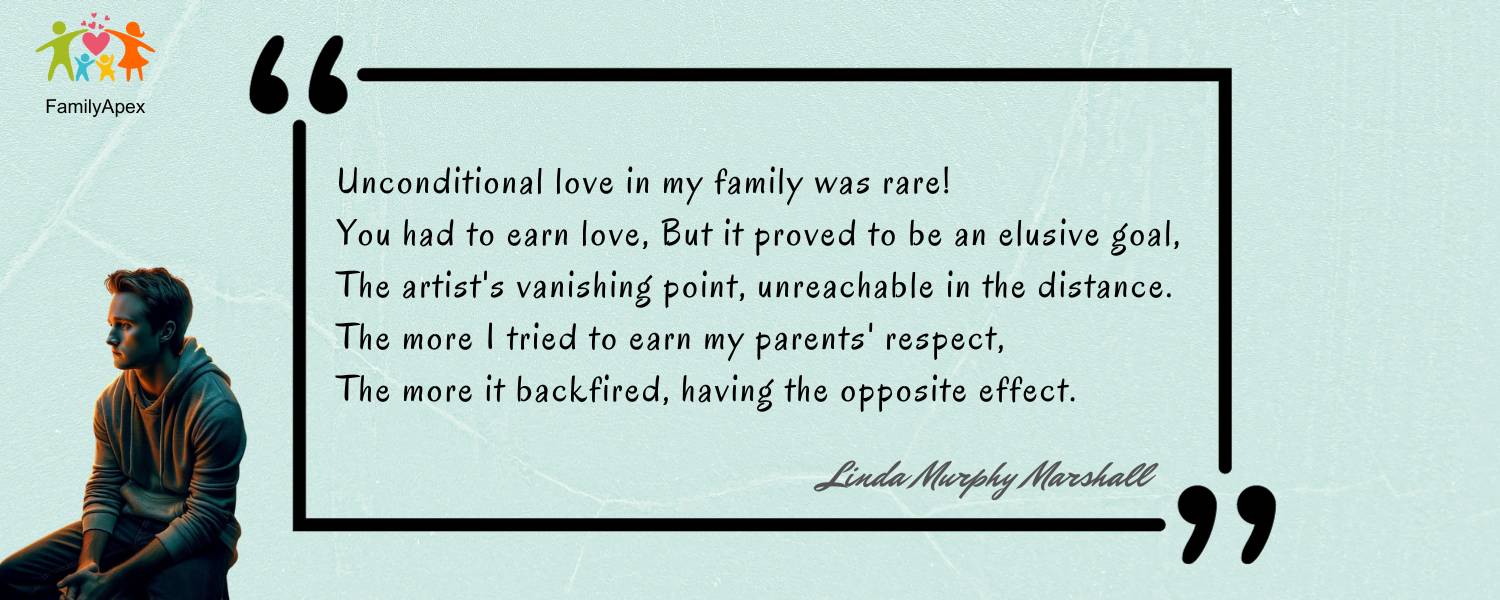It can’t be unusual for one to feel low and melancholy within a presence near a relative.
While a person that is very involved in researching the subject about familial interactions, I have seen many situations in which people struggle via these kinds of feelings.
Such sentiments are frequently caused by complex network involving thoughts, connections, along with sensations which make up our own family bonds.
I just got onto research that examined connection among fundamental familial relationships to depressive symptoms within more than 3,000 kids among ages about ten to eighteen.
Results seemed striking: this was shown that having a happy home environment significantly reduced risk of depressive disorders.
On the other hand, it has been determined that difficult familial relationships may have an impact regarding teenagers’ experiences of despair as well as melancholy.
The enormous influence our familial surroundings might possess upon how we feel mentally has been highlighted by such discovery.
Intricacies from familial connections, causes for such emotions, while doable actions in order to better understand along with managing our own sentimental terrain will be addressed in detail during we engage with current essay.
Using our collective memories as well as vast amounts of information within the area, let’s set out upon the current mission.
1. Understanding the Emotions
1.1. The Complexity of Family Dynamics
Families have complex processes that are frequently molded through long-term common recollections, occasions, as well as relationships.
Every participant has a distinct function that they all perform for improving the spiritual atmosphere.
Such relationships might constitute an indicator for power as well as possible cause associated with psychological suffering, as far as I’m concerned just like an investigator within a subject.
unanswered disputes and difficult connections, in example, might intensify emotions for melancholy and loneliness, even though relative might function like an oasis over outside pressures.
1.2. Implicit Memories and Their Impact
Relationships alongside close relative frequently trigger hidden experiences, which are unintentional, subconscious flashbacks.
Such early-life experiences have power to shape our current feelings as well as behaviors.
Consider straightforward relative get-together when certain statements and action sets off waves for memories regarding previous incidents.
Occasionally the source concerning anguish isn’t current circumstances; rather, this might be an unconscious memory regarding previous times returning.
In order to deal with underlying reasons from our moods, it is potentially imperative that we acknowledge as well as comprehend such recollections.

2. Common Reasons for Feeling Sad Around Family
The relative we have represents initial social group we engage by, while the connections along with emotions we experience there have a lasting impact across numerous regarding our subsequent partnerships.
I have discovered number of typical causes to supply people to experience melancholy and unease within presence of the people they love throughout their lives:
2.1. Past Traumas and Unresolved Issues
- Childhood Events: Adolescent experiences may create long-lasting psychological wounds, despite the fact that we don’t clearly recall them. They may consist of:
- Abuse of children via their older brothers or sisters
- Observing arguments within families
- Facing disregard and partiality
- Unresolved Conflicts: Relations with relatives might bring up old fights, even miscommunications which had previously been not resolved, which may cause melancholy and bitterness.
2.2. Perception of Not Being Understood
- Generational Gaps: Generational variations in encounters, attitudes, while opinions may cause miscommunications and sentiments for isolation.
- Unmet Emotional Needs: Each person requires psychological demands, while sensations like loneliness might result from relative who do not recognize and comprehend such requirements.
2.3. Implicit Memories Resurfacing
Like we’ve previously said, some stimuli have the ability to evoke memories—both positive as well as negative. Such catalysts may consist of:
- Certain terms and expressions
- Relative customs and practices
- Specific places and inherited familial items
2.4. Toxic Family Environment
| Signs of a Toxic Family Environment | Potential Impact on Individuals |
| Frequent disparaging remarks as well as comments | Weak sense of value as well as confidence |
| Influential actions | Confusing or self-conscious |
| Absence from limitations | sensation confined and overpowered |
| Regular disputes along with altercations | ongoing worry or tension |
2.5. Feeling Disconnected or Unsupported
- Lack of Shared Interests: Here may get less common hobbies and occupations when relative follow various routes throughout the years, which can cause emotions about alienation.
- Absence of Emotional Support: Despite being accompanied via relative, certain relative may have trouble expressing their emotions, which can leave them sensation alone and isolated.
3. The Impact of External Influences on Familial Emotions
There is more to the relative we have than meets the eye when it comes to our inner relationships.
Outside factors that come from peer relationships, means of communication representations, while society standards may have a big impact upon the way individuals see and relate to one another as relatives.
Such outside variables have potential to both exacerbate current problems and create brand-new ones, which makes it critical for recognizing as well as dealing with themselves.
3.1. Societal Expectations and Family Roles
- Traditional Roles and Their Evolution: The requirements that modern civilization sets upon familial duties have changed throughout time. As an example:
- Moms focusing over caring responsibilities and dads becoming the income earners.
- Kids have been observed but didn’t been told, while they’re supposed to go along instead of take control.
- Even though such positions changed throughout the years, traces regarding such requirements might remain, which may lead for conflict whenever relative choose for defying such standards.
- Cultural Pressures: Demands upon duties, regard, along with relative hierarchy vary throughout civilizations. Getting caught among the conventions from contemporary society as well as the demands underlying history might cause one to feel confused and misinterpreted.
- The Pressure of Perfection: A “ideal family” stereotype, which is meant for being happy, encouraging, along with conflict-free, may prove quite draining. Families who differ from such a pattern may experience stress while repressed feelings just like a result of feeling forced of fitting into or criticized.
3.2. Comparisons with Other Families and the Role of Media
- The Illusion of Perfection: Due to networking’s popularity, this is simple for getting caught up by evaluating our familial in the shadows of emotions experiences with other people’s emphasize scenes. Frequent comparisons might lead for sentiments about inferiority and a belief which one’s circle of relative has become deficient.
- Television and Film Portrayals: Individuals are frequently portrayed into the press ranging from completely damaged as well as idealized groups about people surrounded by harmony. Such depictions may have an impact regarding the way we view as well as anticipate the relative we share.
- Peer Interactions: Differences might arise while discussing familial situations alongside buddies or coworkers. Such encounters may influence our perception of our relative’s relationships, regardless it’s through learning regarding strong relative and difficulties faced by another person.
- Economic and Social Pressures: Relations between families may be impacted by outside factors like monetary distress, social turmoil, and perhaps local relations. As an example, financial difficulties may result in more strain as well as friction inside the familial unit.



